Proteins are an important part of our daily diet. They provide our muscles, cells, and vital tissues with the growth factors that are required to keep them healthy and functioning normally1.
In India, a large proportion of individuals prefer to follow a vegetarian diet. While this is a highly nutritious diet, it can sometimes be low in certain elements such as vitamin B12 and proteins. In clinical practice it is common to see vegetarians with low vitamin B12 levels, but clinical evidence also suggests that people who follow vegetarian diets have a lower incidence of developing heart disease and related complications1,2.
Proteins are made of building blocks called amino acids. Amino acids are essential for cell growth and development throughout our lifetime. Proteins form the basic structure of not just our vital organs, but also our skin, hair, and numerous other important parts of our body. If we consume lesser quantities of protein, we could lose muscle strength and muscle mass and become weaker. For individuals who are recovering from a medical illness, may find it beneficial to have a high protein diet to help in faster recovery3.
The following is a rough summary of daily protein requirements based on weight3,4.
Note that protein requirements will vary on the basis of sex, age, level of physical activity, and other factors like whether you are pregnant or breastfeeding3,5.
Let’s take a look at some of the protein-rich foods that are available to the vegetarians.
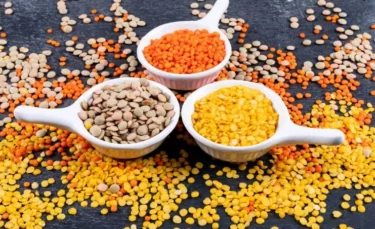
Lentils, also called daal, is a popular addition to an everyday meal in India. Each cup of lentils contains about 18 g of protein making it an excellent source of vegetarian protein2,5. Lentils can be had in the form of curries, soups, and are eaten with rotis or rice.
In addition to protein, lentils also contain a good quantity of fibre which can help maintain healthy bacteria within the gut. There is some understanding that regular consumption of lentils may also reduce the risk of developing heart disease and cancer6. However, a small number of individuals who consume lentils on a regular basis may notice excessive flatulence. This is not unique to lentils but is generally seen with a high protein diet7.
Lentils also contain quality antioxidants and numerous minerals which can help protect the cells. You may benefit from having a cup full of lentils every day to get your required dietary amount of protein, but make sure you plan your meals with a healthcare professional to attain maximum benefit.
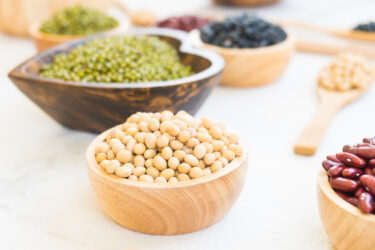
Legumes include varieties of beans such as kidney beans, black beans, chickpeas, and others which are widely considered to be a powerhouse of proteins. Chickpeas contain about 14 g of protein per serving and also contain numerous other elements and minerals that can keep you healthy, strong, and fit2. Clinical studies6 also found that regular consumption of legumes can help keep cholesterol levels low. Chickpeas and other legumes are great in salads or in the form of low-fat, low salt curries5.
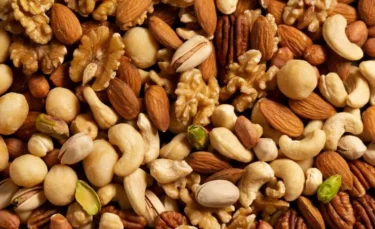
Nuts are superfoods. If follow a good veg protein diet, you should strongly consider adding nuts to the cavalry. Nuts such as almonds and cashew nuts are an excellent source of protein and are always included in the protein foods veg list1.
On average, eating about 20 to 25 whole almonds every day can give you about 6 g of protein2. However, this can be a lot to eat in one go so having a handful of mixed nuts every day may give you the protein boost your body requires. Nuts also contain a good amount of dietary fibre and vitamin E.
If you are looking for a heart-healthy snack and protein-rich food for vegetarians, you can include unsalted nuts as a part of your daily diet after consulting with a healthcare provider1.
We’re about to uncover a fascinating fact about protein one that sets it apart from fats and carbohydrates. Your body relies on protein to build and repair tissues, but unlike the others, protein cannot be stored as a reserve. This means that you may need to provide a continuous supply of protein through your diet to meet your body’s repair and maintenance needs.
Dr. Rajeev Singh, BAMS
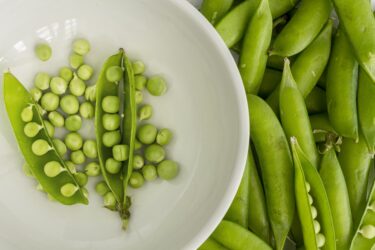
Green peas are an excellent source of protein. A cup full of green peas gives you nearly 8 g of protein2. In addition to this, they are rich in vitamins A, K, and C and also contain numerous minerals and a high quantity of fibre. Simply including green peas in your daily vegetarian diet can help give you the additional protein your body requires1.
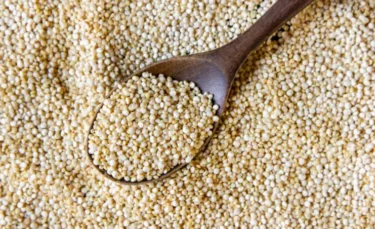
Quinoa is considered a food that is healthy, low in fat, and high in protein. Each cup of quinoa can provide around 9 grams of protein and can be beneficial for those who have diabetes2. They are rich in dietary fibre, which can help in keeping the blood sugar levels under control. Their glycaemic index (GI) is 53. Keeping in mind that GI of 55 or below is considered low, quinoa is an ideal food that can be included in a diabetic diet plan. You may refer to the Glycemic Index Food Chart to find out the GI of other foods. Besides these, quinoa also contains a high quantity of complex carbohydrates and numerous minerals. Quinoa is definitely one for the protein foods vegetarian list.
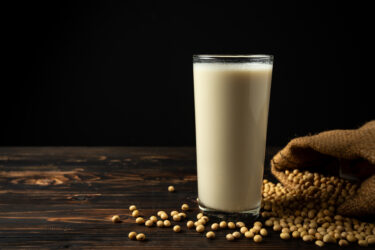
In recent years, soy milk has gained considerable attention as a valuable source of plant-based protein. It is particularly beneficial for individuals with lactose intolerance who require non-dairy protein alternatives. A single cup of soy milk contains approximately 8 grams of protein, making it a nutritionally significant option2. In addition to its protein content, soy milk is also a good source of calcium, vitamin B12, and vitamin D. However, the latter vitamins are usually present in soy milk that has been fortified.
Soy milk can be incorporated into the diet in various ways, such as an additive to tea or coffee, or consumed on its own. It is advisable to opt for unsweetened versions, as sweetened versions, as sweetened varieties may contribute to excess caloric intake and potentially decrease the health benefits of regular consumption.
Additionally, there are several products made from soy other than milk, which are also protein-rich. These include tofu (made from the curd of soy milk), edamame (a preparation made from immature soybeans, boiled or steamed) and tempeh (a fermented preparation native to Java, made in a cake form). These products have similar health benefits to soy milk as they retain their high protein content, and they also provide additional nutrients which are more filling than liquid soy milk. These products not only help to provide your daily requirement of protein but also help manage weight1.
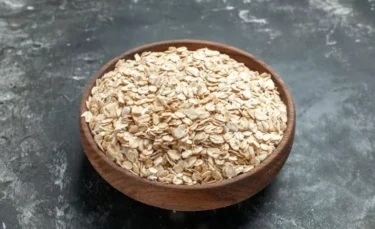
There is no doubt that oats are superfoods. Not only are they high in protein but they are a powerhouse of soluble fibre and clinically proven to help reduce the risk of developing heart disease and to lower cholesterol. A small cup of oats can provide you with nearly 6 g of protein and a quarter of your daily requirement of fibre2. They also help regulate blood sugar levels, owing to their high fibre content and low glycaemic index. You can take a look at the diabetes food chart to find other foods that can help control diabetes better.
Try to avoid masala oats or ready to eat meals as these contain higher quantities of salt or sodium and may not be the healthy start to the day that you hope you will get from them. Instead, buy regular oats and consume them with milk and a spoonful of honey sprinkled with almonds. You could even chop some fruit up into them or add a fistful of berries. You can make the same oats savoury too with a bowl of yoghurt and herbs for taste. A cup full of oats in the morning is a great way to start your day.
Also Read: 8 Most Effective Foods To Fight Thyroid!
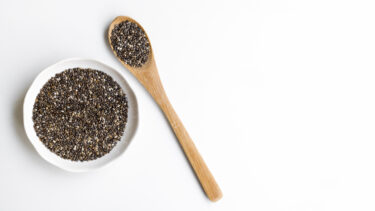
Chia seeds have recently caught on in India and are being used more and more in our country as a superfood. A 35 g serving of Chia seeds contains 6 g of protein and a whopping 13 g of fibre 2. In addition to this, they are also high in nutrients such as calcium, magnesium, and iron and also contain omega-3 fatty acids and numerous antioxidants that can help you stay fit.
Chia seeds are easy to use but make sure that you consume the organic variety. Also, don’t confuse them with basil seeds as they look quite similar to chia seeds. Simply soaking chia seeds in water for a short time and then having them with your favourite beverage can give you the nutritional boost your body deserves. Chia seeds are a great protein source for vegans3.
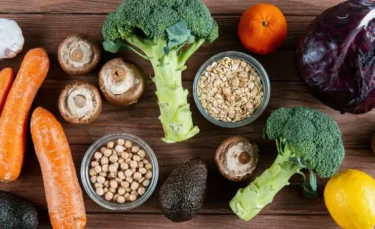
Vegetables are widely considered to just contain vitamins and minerals with a small number of carbohydrates and proteins. However, there are some vegetables that have a greater quantity of protein such as spinach, potatoes, broccoli, asparagus, and even sweet potatoes9. Though the quantity of protein each of these is not comparable to non-vegetarian sources, it still has a significant value of around 5 g of proteins for one cup of cooked vegetables.
It’s time to debunk a common misconception that you need to be non-vegetarian to fulfil your protein requirements. Contrary to popular belief, you can absolutely meet your protein needs through a vegetarian or plant-based diet. Explore the vast array of protein-rich plant foods available and create delicious, nutrient-dense meals that support your health and fitness goals.
Dr. Smita Barode, B.A.M.S, M.S.
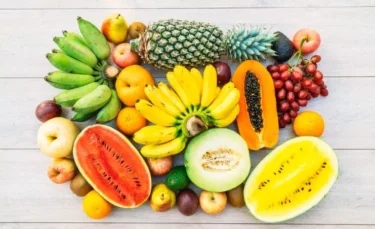
Fruits are generally poorer sources of protein. That being said, fruits such as bananas, guava, and certain berries have a significant amount of protein in them2. However, do not rely on fruits as your primary source of protein instead, choose from one of the options listed earlier in this article.
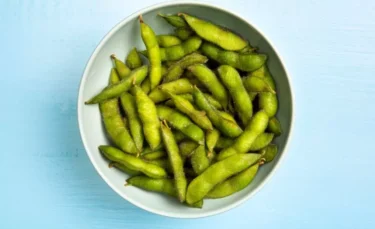
Edamame is soybeans that have not been fully matured, typically eaten as a side dish in the eastern countries of Asia. Edamame may be found in popular dishes like sushi or can be consumed as a standalone snack/meal. This form of soybean may be cooked and eaten either in the pods or as beans. Due to its simplistic preparation, edamame is a protein-rich vegetarian food that can be easily added to any diet3. Edamame has about 12g of protein per 100g of beans8.
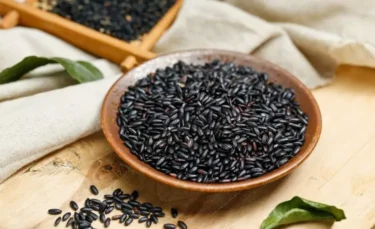
Although not really a species of rice, wild rice is a grain found and grown by the native people of North America and in certain parts of China. This grain is slightly chewy with an almost vegetable-like taste and provides a lot of nutrition including 15%-20% of your daily required zinc and manganese. Wild rice has a protein content of about 14g per serving of 100g, keep in mind that you may eat more than just 100g of wild rice in each meal8. Wild rice may be a great staple protein-rich vegetarian food to add to your diet since it can be consumed regularly (even multiple times a day). You can get diet chart made by a healthcare professional to help you pair wild rice with other dishes to make it more nutritious.
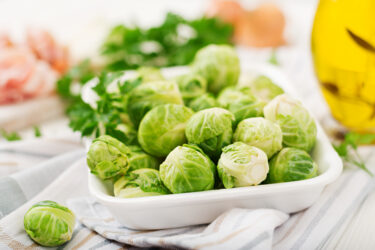
Brussels sprouts are also a good source of protein, in addition to being high in fibre and packed with nutrients, While its protein content of 3-4g per 100g does not make it a competitor to meats and eggs, it is still a high protein-rich option among vegetarian foods8. Add brussels sprouts to your salads for a protein boost, or simply steam or roast them to make it as a wholesome midday meal.
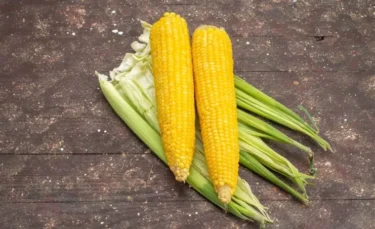
Corn is one of the most cultivated crops today. Corn is used for the production of corn syrup, and cornflour and can also be used as a food source by itself. Sweet corn is a tasty snack to try, whether boiled, steamed or roasted with a delicious slathering of butter on top. Sweet corn has 3.3g of protein content in every 100g serving, with negligible fat and zero cholesterol8.
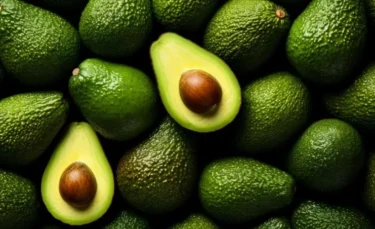
Avocado is a fruit native to North America that has gained popularity as a superfood due to its highly nutritious nature, both in macronutrients and the vitamins and minerals it contains. Although it was initially popularised in Mexican cuisine, avocado is fast becoming a protein-rich vegetarian food for bodybuilding and fitness routines. Avocados can be eaten as is, just sliced up or added to salads and other preparations like guacamole10.
Did you know that approximately one-fifth of your body weight is made up of protein? Yes, you heard it right! Protein is not just a nutrient but a building block for your very existence. It plays a crucial role in the structure and function of every cell and tissue of the body, from your luscious locks and sturdy nails to your life-sustaining blood, resilient skin and robust bones.
Dr. Siddharth Gupta, B.A.M.S, M.D (Ayu)
Also Read: Natural Home Remedies To Reduce Belly Fat
Yes, eating too much protein can put you at risk of developing kidney stones. Those who eat a higher quantity of saturated fat and red meat on a weekly basis are at risk of suffering from various kinds of heart disorders and colon cancer. Ideally, the recommended daily protein intake for men is 56 grams and for women is 46 grams. However, this can vary depending upon your height and weight.
Summer in India can sometimes be uncomfortable. But there are ways to maintain a healthy diet and fitness regime without having to compromise on food. When the heat gets too much, here are some ‘cool’ ways to include protein in your diet:
> Chilled homemade protein shakes
> Raita with your meals
> Watermelon seeds
> Have more lentil soup
To keep yourself fit, warm, and well-cared for during the cold winter months, you may find it benefitting to eat the following protein items:
> Eggs
> Nuts and seeds
> Lentil soup
> Soy
> Chickpea curry
In order to ensure that you are getting your ‘complete protein source’ through your daily meals, you may find it beneficial to add these foods to your diet:
> Amaranth: A type of pseudocereal (a plant that produces seeds or fruits and are used and consumed like cereal grains) that act as an alternative to gluten-free grain originally a staple in Mayan and Aztec cultures.
> Buckwheat: A plant-based pseudocereal that is a good source of manganese, magnesium, iron, copper, and phosphorus.
> Ezekiel Bread: A highly nutritious bread that contains the goodness of nine essential amino acids because it is made from a combination of soybeans, millet, spelt, lentils, wheat and barley.
> Spirulina: A type of algae-based supplement which are commonly available in health food stores, pharmacies, and online marketplaces.
> Hemp Seeds: Comes from the plant cannabis sativa and is rich in alpha-linolenic acid and essential fatty acid omega 6.
> Nutritional Yeast: a deactivated strain of saccharomyces cerevisiae with a characteristic umami flavour that imparts a cheese-like flavour to pasta, mashed potatoes, and popcorn. Sold in the market as flakes or yellow powder.
> Hummus & Pita bread: Hummus in combination with pita bread is a classic Middle-Eastern dish that provides you with all nine essential acids. This is because hummus is made from ground chickpeas and the dough of pita bread is made from a type of wheat that is low in lysine.
Yes, protein-rich food can contribute to weight gain if consumed in excess, as proteins provide calories similar to other macronutrients. However, protein intake in moderation promotes muscle growth and can enhance satiety, potentially helping in weight management by reducing overall calorie intake.
Yes, consuming high amounts of protein-rich foods, especially those containing purines like mushrooms and green peas, can increase uric acid levels in the body. This is because purines are metabolised into uric acid, which can lead to elevated uric acid levels and potentially contribute to conditions like gout.
A protein-rich diet can cause constipation, particularly if it is low in fibre. Many protein-rich foods, such as meat and dairy, do not contain fibre, which is essential for healthy digestion and regular bowel movements. To prevent constipation, it’s important to balance a protein-rich diet with plenty of fibre from fruits, vegetables, and whole grains.
The body needs protein-rich food to build and repair tissues, produce essential enzymes and hormones, and support immune function. Proteins also play a crucial role in muscle development and overall cellular health.
Yes, you can eat protein-rich foods at night. Consuming protein before bed can help with muscle repair and growth during sleep and may promote feelings of fullness, potentially aiding in weight management. However, it’s important to choose easily digestible protein sources and avoid overeating to ensure a good night’s rest.
After eating protein-rich food, you might feel more satisfied and full, as protein promotes satiety. You could also experience a stable energy level since protein helps regulate blood sugar. Additionally, you might notice improved muscle recovery if you engage in physical activity, as protein supports muscle repair and growth.
Yes, protein-rich food is beneficial for hair growth. Proteins, especially keratin, are essential components of hair structure. Consuming adequate protein supports the production of keratin and promotes strong, healthy hair. A diet low in protein may lead to hair thinning and loss.
Mushrooms are not typically considered a high-protein food. While they do contain some protein, their protein content is relatively low compared to other sources like meat, dairy, legumes, and nuts. However, they are a nutritious addition to a balanced diet, offering vitamins, minerals, and fiber.
Yes, rice does contain protein, but in relatively small amounts compared to other protein-rich foods. For instance, a cup of cooked white rice has about 4-5 grams of protein, while brown rice contains slightly more8. While rice can contribute to your overall protein intake, it is not a primary source of protein in most diets.
Disclaimer: The information provided here is for educational/awareness purposes only and is not intended to be a substitute for medical treatment by a healthcare professional and should not be relied upon to diagnose or treat any medical condition. The reader should consult a registered medical practitioner to determine the appropriateness of the information and before consuming any medication. PharmEasy does not provide any guarantee or warranty (express or implied) regarding the accuracy, adequacy, completeness, legality, reliability or usefulness of the information; and disclaims any liability arising thereof.
Disclaimer: The information provided here is for educational/awareness purposes only and is not intended to be a substitute for medical treatment by a healthcare professional and should not be relied upon to diagnose or treat any medical condition. The reader should consult a registered medical practitioner to determine the appropriateness of the information and before consuming any medication. PharmEasy does not provide any guarantee or warranty (express or implied) regarding the accuracy, adequacy, completeness, legality, reliability or usefulness of the information; and disclaims any liability arising thereof.
For a healthy physical and mental state, a balanced diet plays an important role. Micronutrients, including essential vitamins, contribute to various physiological processes in the body. Among these, vitamin B12, also known as cobalamin, is a water-soluble vitamin that plays a key role in supporting the formation of red blood cells and in maintaining normal neurological function.
Vitamin B12 is primarily absorbed in the stomach, and any excess is typically stored in the liver for future use as required by the body1.
According to the National Institutes of Health2, the daily required dose of vitamin B12 is 2.4 mcg and slightly higher in pregnant and lactating females of about 2.8 mcg.
As people age, changes in digestion may affect how certain nutrients are absorbed, including vitamin B12. In older adults, lower levels of stomach acid, a factor involved in vitamin B12 absorption, may contribute to reduced availability of this nutrient from food sources. This is why maintaining adequate intake of vitamin B12 is considered particularly important in later stages of life12.
Dr. Rajeev Singh, BAMS
Vitamin B12 is an essential nutrient that supports a range of biological functions. It is involved in the process of DNA synthesis and plays a key role in the formation of red blood cells. Adequate levels of vitamin B12 are also important for maintaining overall health and wellbeing, especially in areas such as bone support, cognitive health, and cardiovascular function1.
Some of the potential roles of vitamin B12 include:
Vitamin B12 is an essential nutrient that is not produced by the body and must be obtained through the diet. It is commonly found in animal-based foods, which may make it more challenging for vegans and vegetarians to obtain adequate amounts. Below are some vegetarian sources of vitamin B12:
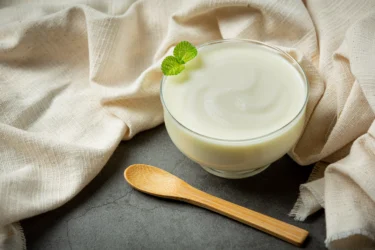
Yogurt can be a valuable source of vitamin B12 for vegetarians. A cup of plain yoghurt may provide approximately 28% of the recommended daily intake of this nutrient. Some studies3 suggest that the body may absorb vitamin B12 from yoghurt efficiently.
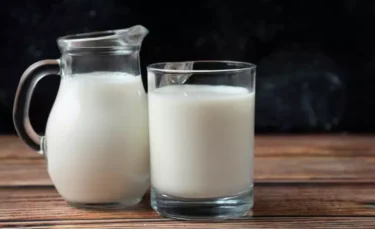
Milk contains vitamin B12 along with protein, calcium, and other minerals. Dairy products such as cheese and paneer may also contribute to vitamin B12 intake2. Some studies4 suggest that vitamin B12 from milk may be absorbed efficiently by the body.
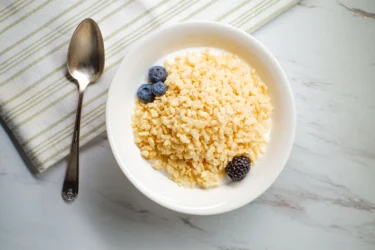
Fortified cereals may be a suitable option for individuals following a vegan diet to help support their vitamin B12 intake. Varieties such as bran and whole wheat oats are often enriched with vitamin B12, as well as folate, iron, and vitamin A. Including fortified cereals as part of a balanced diet may help maintain adequate levels of vitamin B122,5.
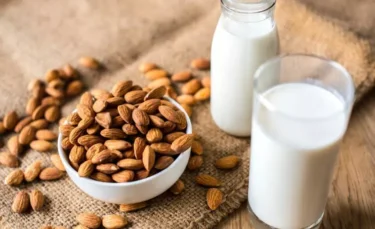
Soy and almond milk are not natural sources of vitamin B12; however, they are usually fortified to include vitamin B12. One cup of soy milk or almond milk may contain approximately 2.1 mcg of vitamin B122,6.
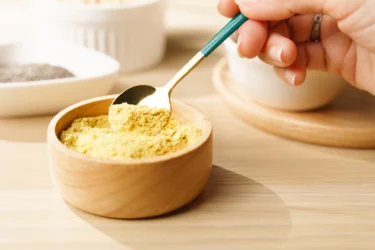
Fortified yeast contains vitamin B12 and can add a mild, nutty flavour to food. One tablespoon of fully fortified yeast may provide approximately 2.4 mcg of vitamin B12. It can be sprinkled into sauces or curries as part of a balanced diet4,7.
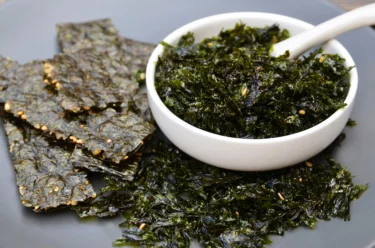
Nori, also known as purple laver, is a type of dried edible seaweed commonly consumed in Asian countries such as Japan. It contains vitamin B12 and may contribute to daily intake. According to studies8, 4 grams of dried nori may provide a useful amount of vitamin B12. It can be enjoyed as a snack or used in dishes like sushi.
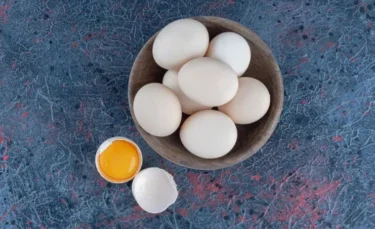
For individuals who include eggs in their diet, eggs may be a helpful source of vitamin B12. They also contain vitamin B2, protein, and calcium. Studies4 suggest that egg yolks may have higher levels of vitamin B12 compared to egg whites. Including whole eggs in meals, such as hard-boiled eggs for breakfast or adding them to soups can support overall dietary intake2,.

Tempeh is a fermented soybean cake and is a delicacy in Japanese cuisine. It is similar to tofu and is very rich in vitamin B12. It can included in meals such as curries or soups to help contribute to your vitamin B12 intake9.
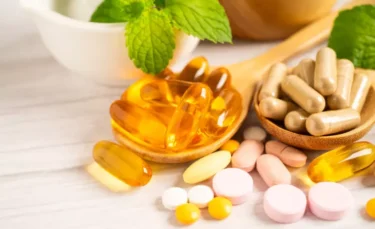
Add Vitamin B12 supplements to your diet to help support your nutitional needs. There are several plant-based vitamin B12 supplement capsules available in the market2.
If you are taking antacids or medications to manage stomach acidity, speak to your doctor or pharmacist before using vitamin B12 supplements. These medicines may influence how vitamin B12 is absorbed in the body11.
Dr. Siddharth Gupta, B.A.M.S, M.D (Ayu)
If your diet lacks vitamin B12, you may develop a deficiency of this essential nutrient. Vitamin B12 deficiency is a gradual process and can impact both physical and mental health. Here are some common signs and symptoms of vitamin B12 deficiency7.
Vegetarians, especially vegans are at a higher risk of developing vitamin B12 deficiency as the majority of the food sources rich in vitamin B12 are of animal origin. Thus, it’s crucial for them to include vitamin B12 supplements in their diet13.
Dr. Smita Barode, B.A.M.S, M.S.
Vegetarian food items can provide some natural sources of Vitamin B-12, but for those who have low levels, Vitamin B-12 supplements are a reliable option to maintain a steady intake. When consumed within the recommended daily limit of 2.4 micrograms, these supplements are generally considered safe. The body absorbs the required amount, and any excess is typically excreted through urine2.
Vitamin B12 is generally safe when taken within the recommended limits, excessive intake may lead to some side effects, including10:
Vitamin B12 is important for maintaining the vitality of nerves. A deficiency of Vitamin B12 can impaire nerve function, potentially leading to neuropathy and other neurological issues14.
Dr. Ashok Pal, B.A.M.S.
Vitamin B12 is a key nutrient that plays a vital role in maintaining overall health. Vegetarians can obtain Vitamin B12 from fortified cereals, dairy products, and non-dairy milk. Incorporating these sources into your diet can help prevent deficiency and ensure optimal health.
Disclaimer: The information provided here is for educational/awareness purposes only and is not intended to be a substitute for medical treatment by a healthcare professional and should not be relied upon to diagnose or treat any medical condition. The reader should consult a registered medical practitioner to determine the appropriateness of the information and before consuming any medication. PharmEasy does not provide any guarantee or warranty (express or implied) regarding the accuracy, adequacy, completeness, legality, reliability or usefulness of the information; and disclaims any liability arising thereof.